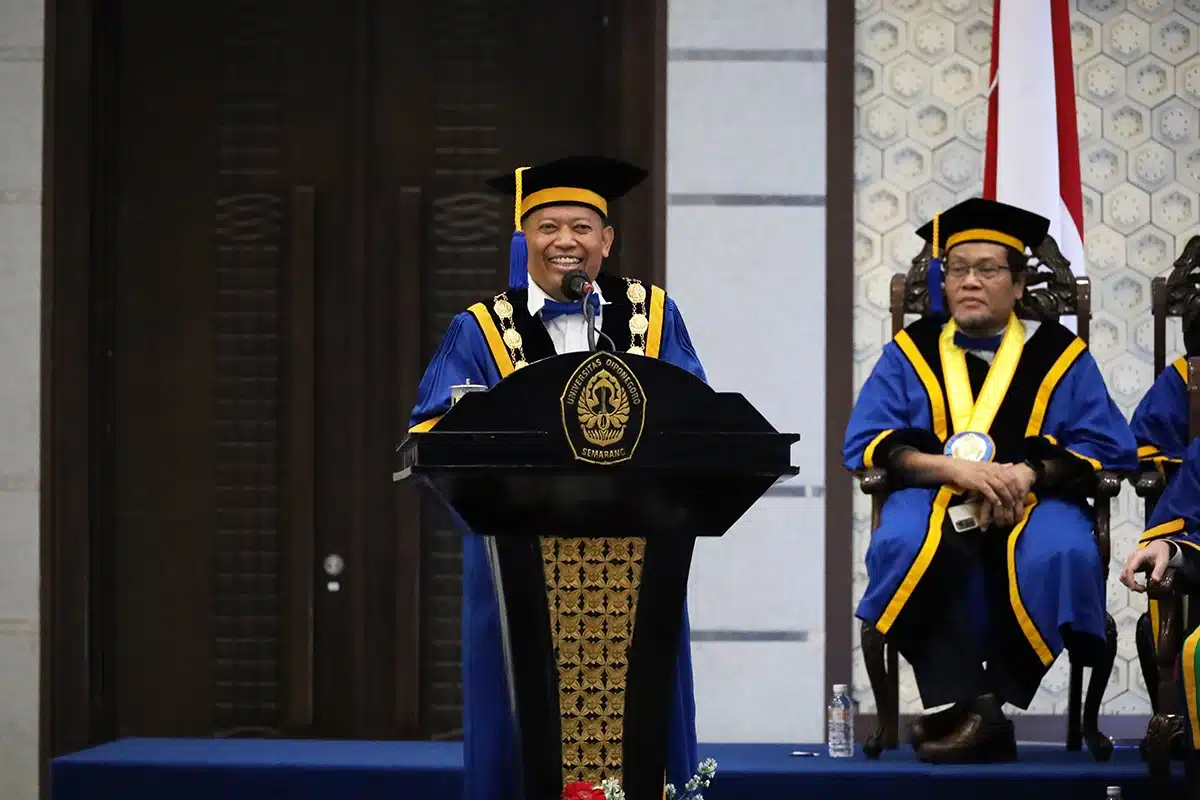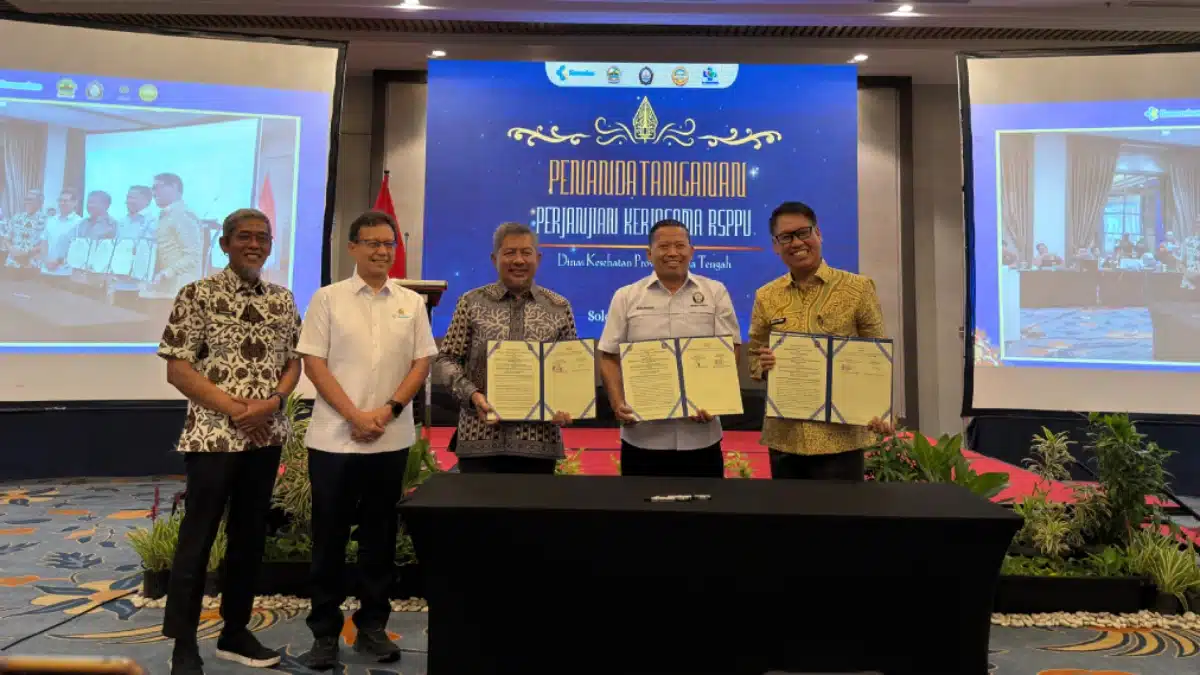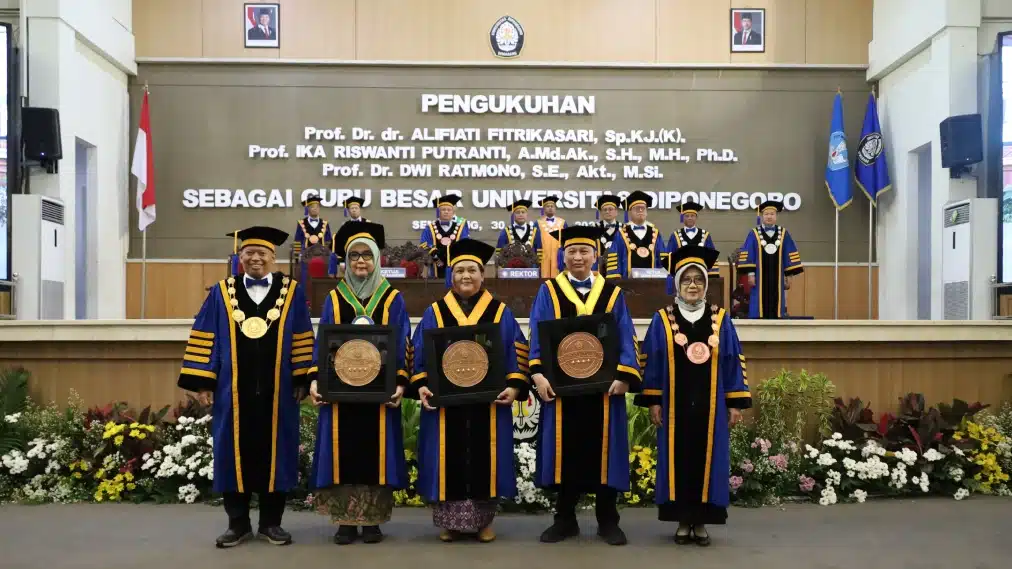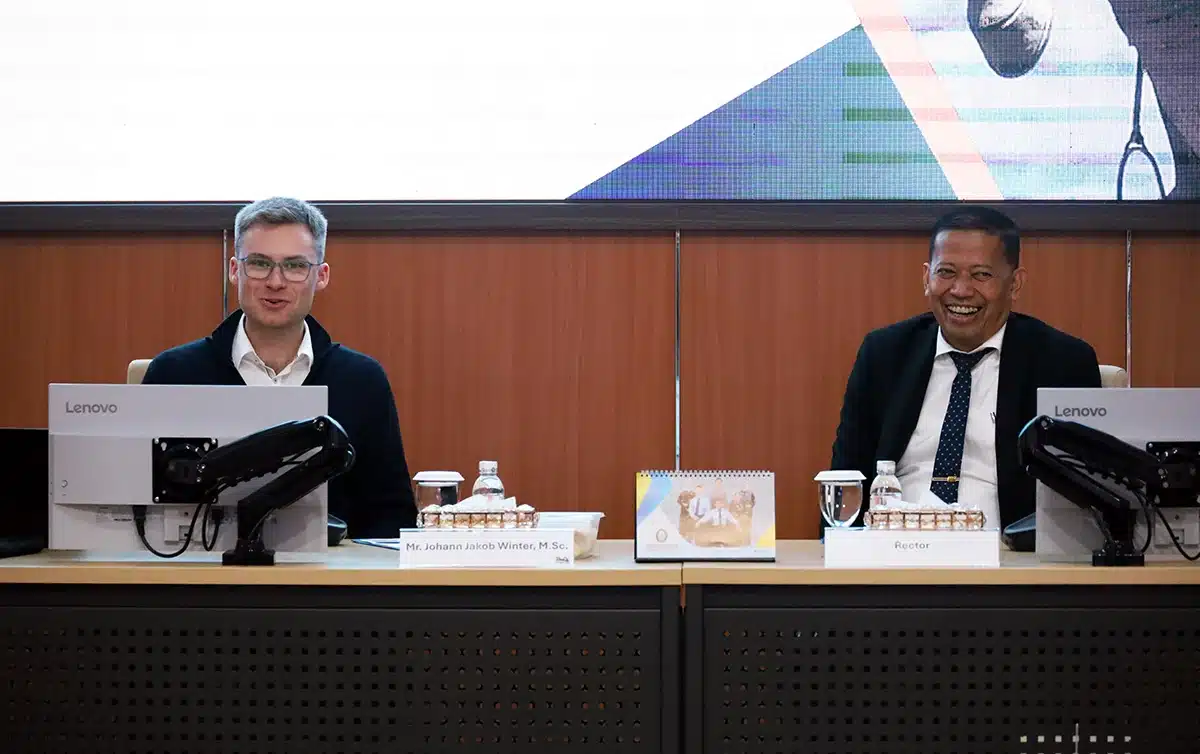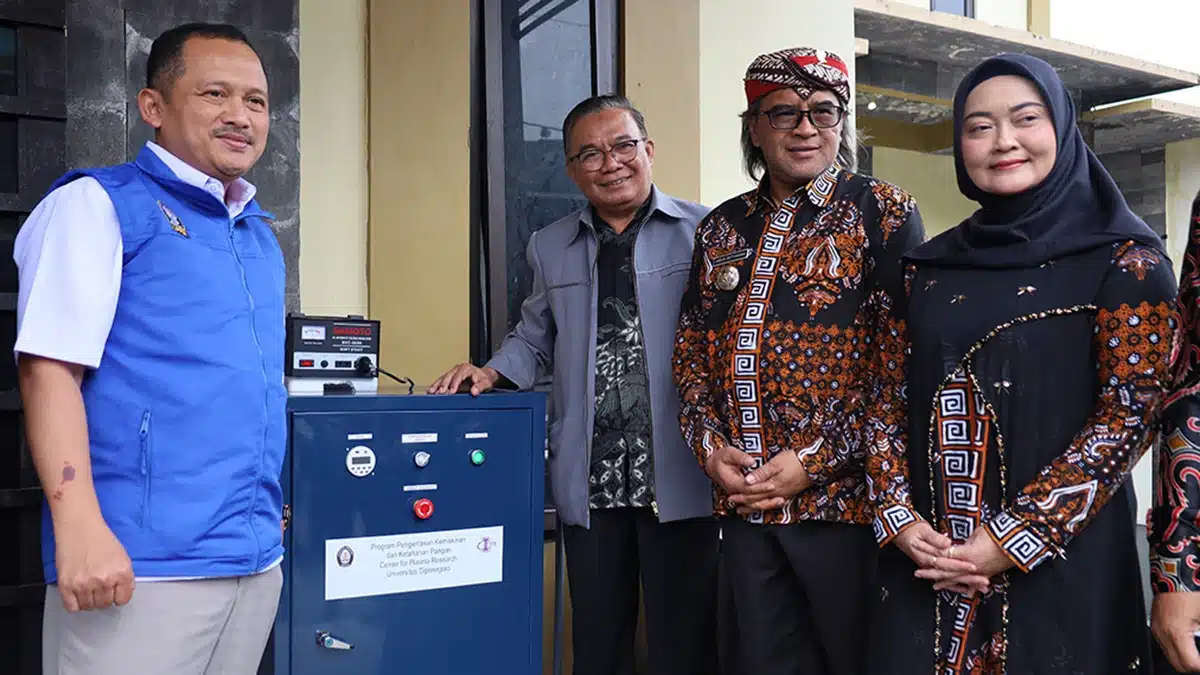Cooperation between the Faculty of Animal and Agricultural Sciences, Diponegoro University and Sukorejo Village, Sambirejo District, Sragen Regency has begun to be realized through various activities. On Monday, January 30, 2023, the Team from the Department of Animal Sciences conducted an inventory of problems in the livestock sector at the Village Hall. The meeting was attended by farmers and breeders from Sukorejo Village, especially from the Karya Mandiri Livestock Group, farmers representing each RT and several community leaders.
Dr. Ir. Cahya Setya Utama, S.Pt., M.Si., IPM, as the Team Leader explained various appropriate technologies that have been introduced to farmers and breeders in various regions of Central Java. “This simple technology is designed to be carried out or operated by farmers, and has an impact on the economic progress of the community,” said Cahya. If they are able to manage their business into integrated organic farming, they will receive income from farming, raising livestock, catfish cultivation, efficiency from using biogas, efficiency from using organic fertilizers and income from the tourism sector.
The common problem faced by the farmers in Sukorejo village is the outpouring of labor in the supply of feed. “If we raise more cows, it means we have to have more manpower to provide the feed,” said the farmer representative from the Karya Mandiri Livestock group. Responding to this problem, Dr. Ir. Mulyono, M.Si., FPP Undip lecturer explained that cattle breeders are now able to provide their feed with the Complete Feed model through the application of feed preservation and processing technology. “So breeders don’t have to look for grass every day. The feed can be collected and stored, just like raising chickens,” said Mulyono. The optimized use of local feed ingredients will reduce feed costs. Cultivating magot as an alternative feed by utilizing household organic waste will be able to provide an inexpensive source of protein feed for chickens, anatidae and catfish breeding.
Edi Prayitno, S.Pt., M.Si., a lecturer from the Dairy Cattle Laboratory said that if it is engaged in farming from upstream to downstream, it will definitely provide more than sufficient income. “The income received will exceed the UMR. Moreover, if it is continued with waste treatment, it can produce both solid and liquid organic fertilizers that have high economic value,” explained Edi. The organic fertilizer produced can be used for agricultural crops and fruit crops. Sukorejo Village is also famous for its organic tourism village, with superior fruit plants, namely durian and avocado. The arrangement and development of the livestock sector also indirectly supports the development of the tourism village, because it has also minimized waste contamination and provided fertilizer to increase durian and avocado production.
The community’s ability to participate in and carry out the training activities that will be held by FPP Undip was conveyed by the Head of Sukorejo Village which was agreed unanimously by the meeting participants. “I am increasingly curious and want to immediately prosper from raising livestock and processing their waste. Hopefully in the future the farming community of Sukorejo village will all prosper,” said Sukrisno, S.Pd.SD, S.H. Training activities are planned to be held in February with material on making complete feeds, magot cultivation, making organic fertilizers and livestock health aspects.



